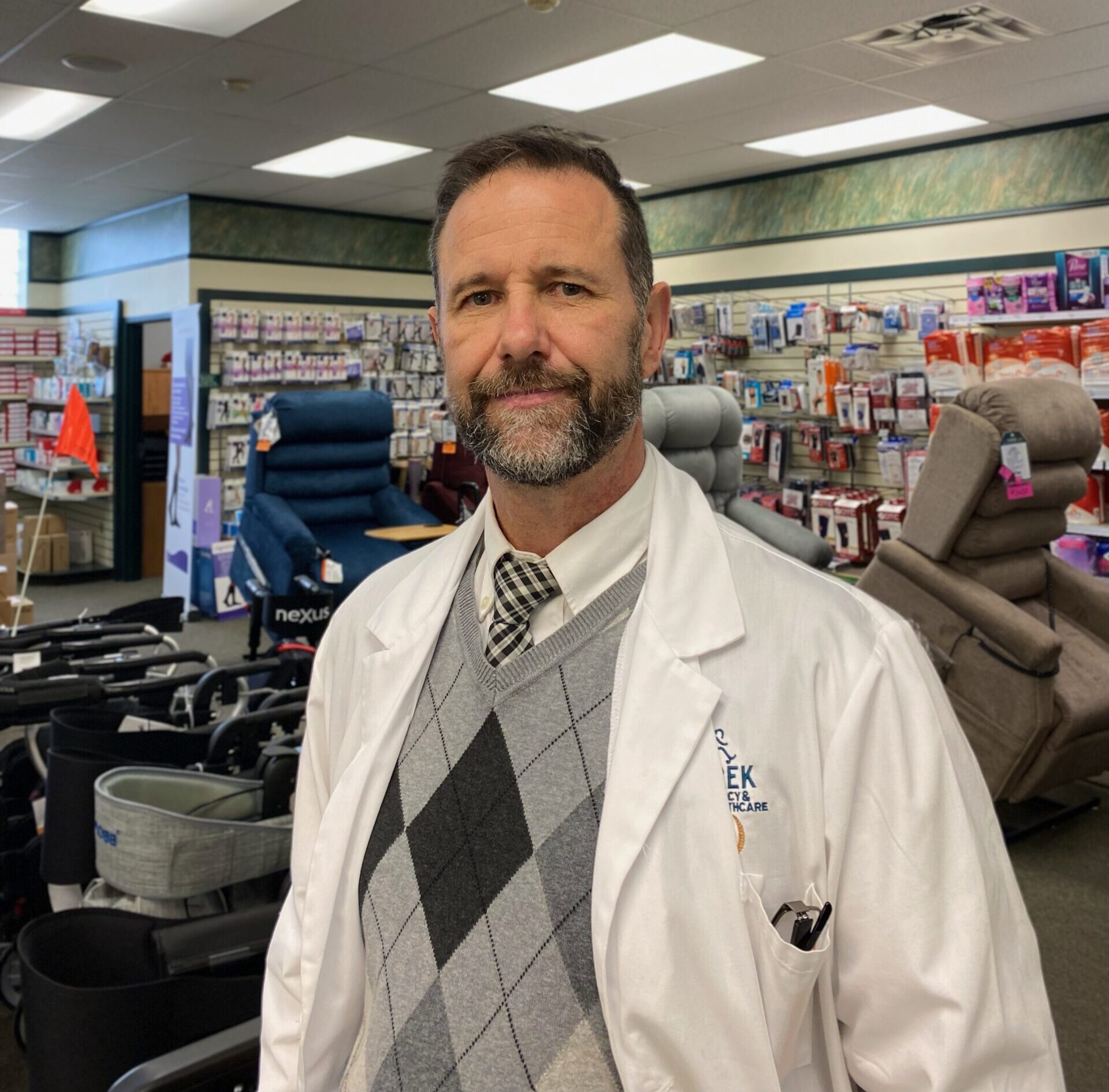By: Steve Bond, BScPhm, RPh, CDE, FASCP
January brings cold temperatures, snow (or rain), and is also Alzheimer’s Awareness Month. Alzheimer’s disease is a type of dementia that affects how we feel, think, and behave. Performing simple activities such as dressing, and feeding can become difficult for the person and their caregivers. Changing the design and layout of the home, coupled with different equipment and devices may be very helpful. As dementia progresses, mealtime may become harder for the individual. Co-ordination and swallowing can be problematic. The following assistive devices can help:
- Cutlery with cushioned handles that are easier to grip.
- Non-spill cups with large handles.
- One-way straws which do not let liquid travel back down.
- A Mealtime Protector for the person’s clothing.
- Plate guards or Partitioned Scoop Dishes make it easier to pick up the food and keep the food on the plate.
Sometimes visual cues can be useful; such as ensuring colour contrast between cutlery and tablecloth, or even contrast between food and the plate (put potatoes on a dark plate so they are more clearly visible).
The bathroom can also be challenging. A raised toilet seat and grab rails near the toilet can assist with getting down and off the toilet. For those for whom incontinence is a concern, things like waterproof mattress covers, pull ups or pads make it easier to clean-up and maintain dignity. Commodes and bed pans near the bed can also be used to go without having to rush to the bathroom. Transfer benches or shower seats and grab bars can assist an Alzheimer’s patient to bathe safely. Long handled sponges can also help people who have dexterity issues.
There are several memory aids to help remember important things. A white board is useful for lists and reminders. A dosette box or blister packs can be used in the early and middle stages of dementia when a person needs help remembering to take medication but still are aware of the day of the week. Automatic pill dispensers which dole out medication along with an auditory or visual cue may be more useful for those with more advanced memory problems. They can even be set up to alert a caregiver if a dose is missed.
Changing the layout of the home and adding useful equipment can improve the lives of those living with dementia and the families. Take care of yourselves and each other.







